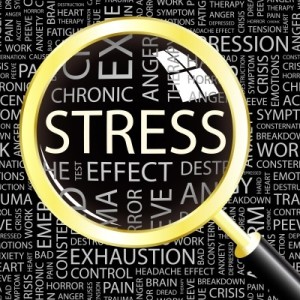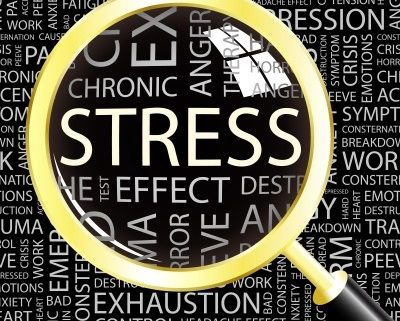It’s Time to De-Stress!
 April is National Stress Awareness Month. You may feel like you’re VERY aware of your stresses and don’t need a month dedicated to it. However, I suggest that during Stress Awareness Month you sit down and take the time to acknowledge your stresses and know that it’s okay to feel that way sometimes. This month, I want to make some suggestions on how to lessen your stress the other eleven months of the year.
April is National Stress Awareness Month. You may feel like you’re VERY aware of your stresses and don’t need a month dedicated to it. However, I suggest that during Stress Awareness Month you sit down and take the time to acknowledge your stresses and know that it’s okay to feel that way sometimes. This month, I want to make some suggestions on how to lessen your stress the other eleven months of the year.
3 Types of Stress
According to the American Psychological Association, there are three major types of stress:
- Acute stress is the most common form of stress. It can come as the exhilaration of learning how to snowboard, or as the headache you get thinking about a looming deadline. It’s a quick hit that is typically relieved as quickly as it hits you.
- Episodic acute stress is common in people who live chaotic or disorganized lives. Many “Type A” personalities suffer from episodic acute stress due to the pressures they put on themselves and possibly others. Chronic worriers also suffer from this type of stress.
- Chronic stress is a stress that’s become the background noise in your life, which you may not even realize is there. It may be the stress of working in a job that doesn’t motivate you, or living paycheck to paycheck; it becomes so commonplace that it’s unconscious. This type of stress causes the most health problems.
It’s completely normal to have some stress in your life. As I mentioned earlier, learning a new skill is a kind of stress, and that’s definitely a positive thing, but long-term unresolved stress can cause a multitude of health problems.
Fight or Flight
All stress is based on the primal “fight or flight” response. When your body senses danger, it goes through a hormonal shift, preparing you to either stay and fight, or run away.
This response causes your heart rate to increase, and your body releases adrenaline and the stress hormone cortisol to give your body an energy boost. Your body is only able to manage this response for short periods of time, but chronic stress means this reaction is happening all the time, never allowing you to recover and go back to your non-stressed state.
Over time, this state of chronic stress can lead to weight gain, anxiety, depression, and an overall feeling of burnout. Bringing yourself back to base is critical in maintaining both your mental and physical well-being.
3 Tips for Stress Relief
How can you better cope with whatever is stressing you out? Here are three tips:
- Identify the cause of your stress. Sometimes just acknowledging something is bothering you is enough to move your body into a more relaxed state. Set aside some time to really think about what’s causing you stress and how you may be able to resolve or move past it.
- Sleep well. Sleep is restorative, and lack of sleep causes a continued hormone cascade, which can cause health problems over time. Try getting yourself into a rhythm of waking the same time every day, or doing some deep breathing relaxation exercises before bed to clear your mind.
- Ask for help. Sometimes your life may throw you a few curveballs at the same time and you may have difficulty managing everything. Sometimes just talking candidly to a friend may help you be able to think more clearly; sometimes you may need the talk to someone trained in stress management techniques. Whichever it is, know there’s help out there if you ask.
Remember, some stress is good stress! This month, I challenge you learn to embrace the good stresses and release the negative ones.
Your Turn To Take Action: What stress-relief techniques will you use this month? Let me know in the comments below.


Leave a Reply
Want to join the discussion?Feel free to contribute!